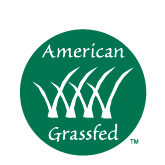Problems with Conventional Agriculture
Chemical-based conventional farming has been an agricultural crutch, allowing companies to profit off the destruction of our Earth. While it seems like the quickest, easiest way to keep weeds and insects at bay while feeding millions of people, it is not the best in the long run. Sustainable agriculture aims to correct the ills of conventional agriculture and protect the planet for generations to come.
What Is Conventional Agriculture?
Conventional agriculture uses:
- Synthetic fertilizers – to maximize the crop yield
- Synthetic herbicides – to get rid of weeds
- Synthetic pesticides – to get rid of insects
- Monoculture – growing huge fields with the same crop, particularly corn and soy, year after year
- Confine And Feed Operations (CAFOs) – for livestock, also known as feedlots
- Genetically Modified Organisms (GMOs) – to increase yield from plants
- Growth hormones and antibiotics – to increase yield from animals
- Heavy irrigation and intensive tillage – to work the soil
Conventional agriculture uses:
- Synthetic fertilizers – to maximize the crop yield
- Synthetic herbicides – to get rid of weeds
- Synthetic pesticides – to get rid of insects
- Monoculture – growing huge fields with the same crop, particularly corn and soy, year after year
- Confine And Feed Operations (CAFOs) – for livestock, also known as feedlots
- Genetically Modified Organisms (GMOs) – to increase yield from plants
- Growth hormones and antibiotics – to increase yield from animals
- Heavy irrigation and intensive tillage – to work the soil
Industrial farming has been the conventional methodology for decades because it results in higher production at lower cost, but there are some very serious problems with this short-sighted approach to feeding the world.
Problems With Conventional Farming Methods
As a consumer, you have the power to choose where your food comes from. Organic food has become the fastest-growing sector of the U.S. food industry, jumping by double-digits annually, as more and more people recognize the benefits of turning away from conventional agriculture. Here are the reasons why:
Conventional agriculture is unhealthy for humans.
The chemicals used in farming have been linked to cancer, allergies, obesity, diabetes, high blood pressure, heart disease, birth defects, and Alzheimer’s.
Of the 25 most commonly used commercial pesticides:
- 18 harm the skin/eyes/lungs
- 17 cause genetic damage
- Half contain known carcinogens
- 10 harm reproductive organs
- 6 disrupt normal hormonal function
- 5 harm the nervous system
Persistent organic pollutants like DDT do not occur naturally, do not decompose quickly, and build up within our bodies over time. The World Health Organization has warned that people who eat food treated with antibiotics become more susceptible to infections and increase the likelihood of antibiotic-resistant superbugs developing.
Beyond the health effects, conventional agriculture consolidates the ability to farm into the hands of a few wealthy land barons.
Conventional agriculture makes for unhealthy cattle.
Conventional beef production involves grain-fed cattle that spend the vast majority of their lives in a confined dirt-floor barn. Some products labeled “pasture-raised” involve calves who spent six to nine months in the field before weaning and spent the final three to nine months on the feedlot, where they consumed grain, antibiotics, growth hormones, and beta-agonists. Cows weren’t meant to dine on grain or live in containment. The distress suffered is not only inhumane for the animals, but it can also negatively affect the quality and nutritional value of the meat.
Conventional agriculture creates an unhealthy planet.
Ocean dead zones, caused by fertilizer runoff, have more than doubled since 1990. Vapor drift from sprayed pesticides containing atrazine has caused reproductive damage to frogs. Over 400 insects and pests are pesticide-resistant, while the bee population of natural pollinators is declining at an alarming level, raising food security concerns.
Conventional agriculture affects the food chain.
By poisoning the grasshopper, you poison the shrew who eats the grasshopper. By poisoning the shrew, you poison the owl, the fox, the coyote, and the wolves. The ecosystem becomes very unstable when any link of the food chain supply becomes disturbed by the use of toxins.
Conventional agriculture is built upon a model of extraction and heavy chemical use that destroys topsoil.
Typical soil contains hundreds of micronutrients. By comparison, chemical fertilizer contains just nitrogen, phosphorus, and potassium. Poor soil health results in increased wind and water erosion, soil compaction, and eventual declines in productivity. Soil that cannot absorb water any longer results in runoff and flooding. More chemical fertilizers must be used to maintain crops.Conventional agriculture is bad for the water.
The overuse of surface and ground water leads to water scarcity. Conventional farming uses approximately 70 percent of our fresh water supply. Yet, pesticides and nitrogen fertilizers leach into the soil and pollute the groundwater, rivers, lakes, and oceans. Fish die off, algae blooms, and people have unhealthy drinking water.
Conventional agriculture is costly.
The U.S. spends about $20 billion a year on agricultural farm subsidies. These payouts were designed to help impoverished farmers affected by natural disasters like the Dust Bowl, but now 60 percent of subsidies go to the largest 10 percent of commercial farms. More than 90 percent of subsidies go to farmers of wheat, cotton, corn, soybeans, and rice, which creates a surplus of food made into processed junk food or livestock feed for CAFOs.
Meanwhile, over half of our fresh fruit and nearly a third of our fresh vegetables get imported from other countries. We spend an estimated $12 billion a year to treat fertilizer-contaminated rural and municipal drinking water.
Be the Re-generation with Thousand Hills Lifetime Grazed 100% Grass Fed Beef
Thousand Hills Lifetime Grazed believes in holistic land management practices that enhance the quality of the Earth, rather than ransacking it for raw materials. We currently maintain a total of 600,000 acres, using regenerative practices to raise our Lifetime Grazed Grass Fed Beef. Our animals are well cared for – foraging on 100% grass for their entire lifetimes.

Organic regenerative agriculture uses:
- No chemicals, hormones, or antibiotics
- Natural fertilizers like compost and manure
- Mixed crop planting
- Rotational grazing
- No/minimum tillage
- Bee and beneficial insect attracting habitat borders
- Free range animals that produce nutrient-dense grass fed beef

Organic regenerative agriculture uses:
- No chemicals, hormones, or antibiotics
- Natural fertilizers like compost and manure
- Mixed crop planting
- Rotational grazing
- No/minimum tillage
- Bee and beneficial insect attracting habitat borders
- Free range animals that produce nutrient-dense grass fed beef
By choosing not to use harmful chemicals and reducing our footprint, we ensure a healthier planet for our children’s children. As Thousand Hills Lifetime Grazed Chief Renegade/Owner Matt Maier put it, “The slow drip of our chemically-laden land and food system is killing our land and our people. We feel an urgency to act.”
Shop our delicious and healthy 100% Grass Fed Beef Delivery today and share in our mission to create a sustainable future.


